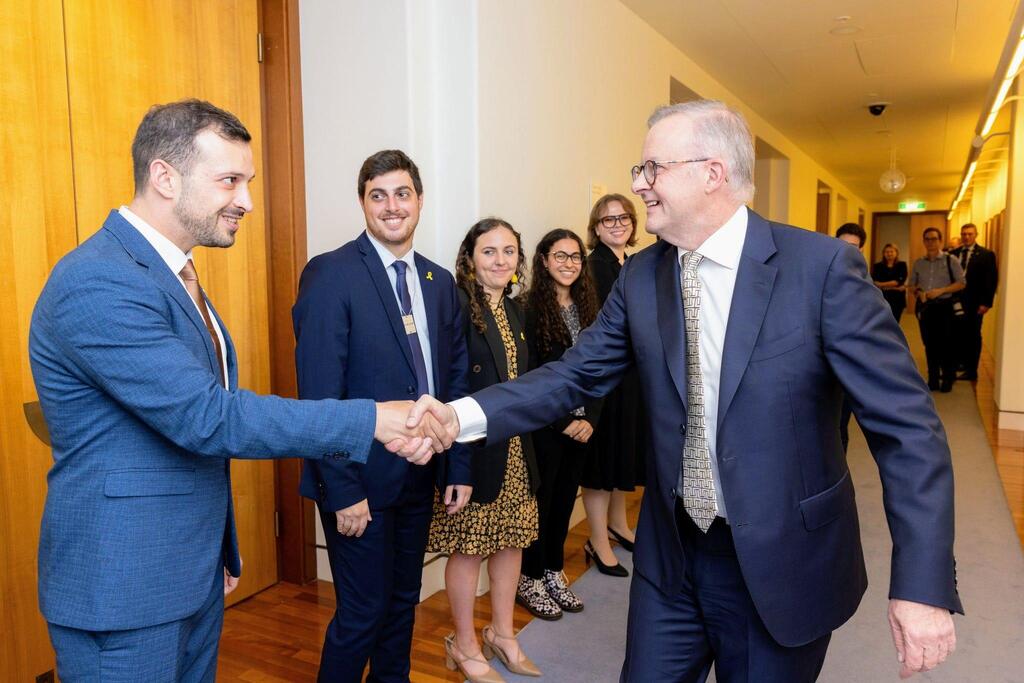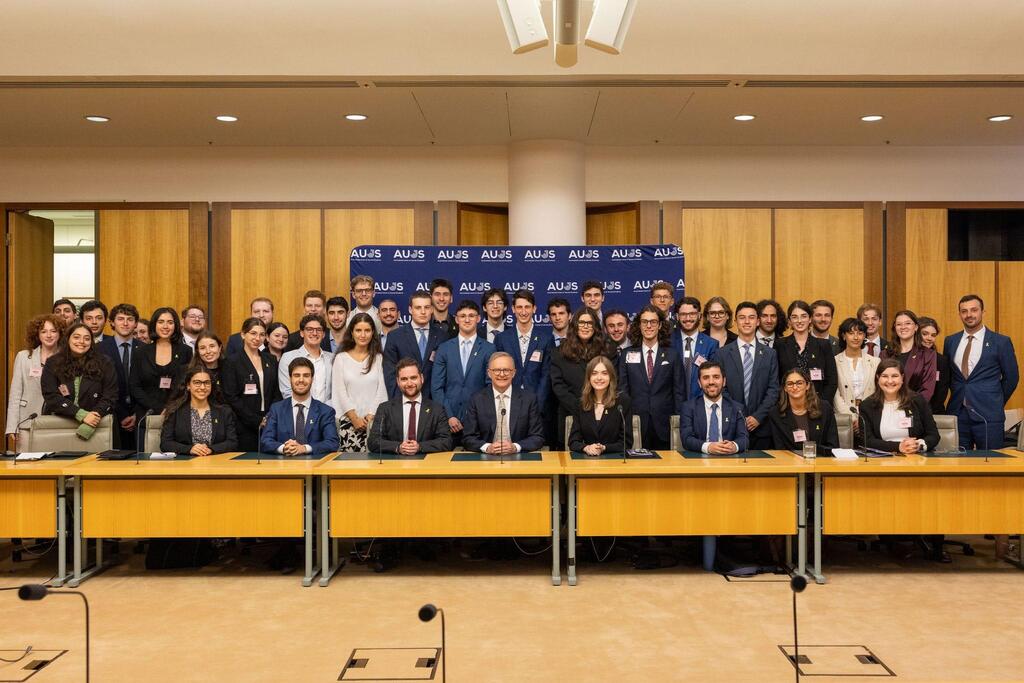Jewish students in Australia met this week with leading Australian decision-makers in Canberra, including Prime Minister Anthony Albanese and Opposition Leader Peter Dutton, as part of the annual political training seminar held by the Australasian Union of Jewish Students (AUJS).
More stories:
Discussions surrounded topical issues in Australia, namely the rise of antisemitism and the steps that the current government is taking to tackle the phenomenon, the war in Israel and the current government's stance on it, and the rising cost of living and its impact on students.
Specifically, Australia's decision-makers were asked about the recent decision by the Australian government to resume financing UNRWA, which Israel still believes has close ties with Hamas; ensuring safe spaces in politics for progressive Jews; and whether or not free speech should be limited when it becomes a threat to the Jewish community.
"In its 26th year, the AUJS Political Training Seminar is a premier event for AUJS and the highlight of our programming calendar. This year, we continued the PTS legacy and soared to new heights of success. Amidst the dramatic rise in antisemitism, especially on campus, this year's event was a powerful source of hope and empowerment for Jewish students. Seeing our Jewish students engage with and be empowered to get involved in the political process has been profoundly uplifting, and I know they will bring that passion and advocacy back to campus," said AUJS President Noah Loven.
In an initiative led by students and Jewish Agency's AUJS envoy Tobias Siegal as a statement of solidarity with Israel, the entire group wore yellow ribbon pins associated with the call for the return of the Israeli hostages held by Hamas since October 7.
"The AUJS Political Training Seminar recognizes the importance of bridge-building and engaging in constructive dialogue, even if difficult at times. Now more than ever, young Jewish students are looking to contribute to their community and have their voices heard. By utilizing this unique opportunity to wear Bring Them Back Now pins during their meetings with Australia's top decision-makers, they did both, added Siegal.
The group also met with the Spokesperson of the Israeli Embassy in Australia, Ilana Lenk, and heard about the latest steps Israel has taken in the diplomatic arena to combat anti-Israel rhetoric and antisemitism in general.
Since October 7, antisemitism in Australia has drastically increased with many cases of violence against Jewish and non-Jewish Australians as well as increasingly incendiary rallies against Israel and Jews alike.



